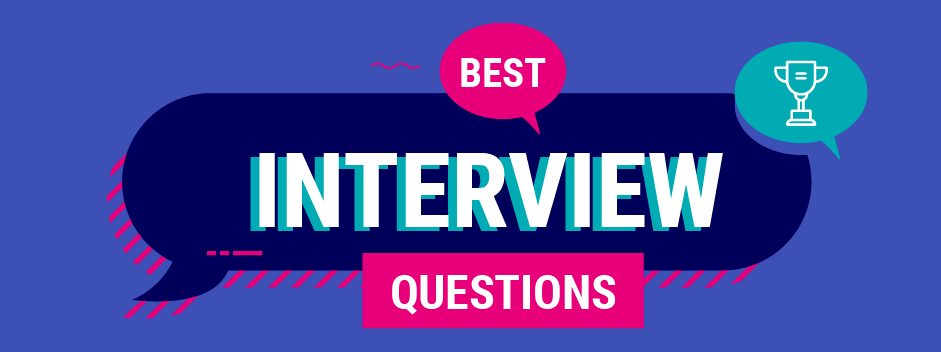There are four types of common interview questions – behavioural, motivation-based, situational and skills-based (commonly called competency-based).
We asked recruitment experts to explain these four types of interview questions and the answers you should be listening for.
The four types of common interview questions
Behavioural
Behavioural questions aim to discover how individuals respond in different situations. The purpose of these questions is to look at how previous behaviour may influence future decisions and performance.
“Our interviews tend to follow the format of behaviour-based interviewing,” says Sarah Beck, SEEK’s Director of Talent Acquisition.
“Questions typically start with, “Tell me about a time when …”. We are looking for evidence that the candidate has done this before and hence can do it again.”
Examples of behavioural questions:
- “Can you tell me about a time when you faced a challenge at work. How did you handle or solve the challenge?”
- “Tell me about a time you didn’t deliver according to expectations. What did you learn for the next time?”
- “Tell me about a time when you had to collaborate with someone to get things done.”
The best responses to behavioural questions provide concrete examples of how specific situations may be handled based on how they were resolved in the past.
Motivation-based
Motivation-based questions seek to uncover the drive and enthusiasm behind a job application. These types of questions are asked to uncover the reasons for applying and whether the values of the candidate and organisation align.
“This type of question is key,” says Jodette Cleary, Chief People Officer at hipages.
“Motivation and drive are often sub-conscious, but they play a big part in predicting job satisfaction. My go-to motivation questions (below) appear basic but are proven in revealing patterns in drive and motivation. These questions reveal if someone is introspective and recognises what has motivated them previously, or if they have never really thought about the ‘why’ of their career choices.”
Examples of motivation-based questions:
- “What’s your biggest dream in life?”
- “Please walk me through your career from when you left high school; why did you study what you did / take the path you did?”
- “What do you enjoy most / least about your role / current company?”
The best responses to these questions address internal and external motivations and the work environment in which candidates are most productive and happy.
Situational
Situational questions target specific issues and challenges that may occur in the workplace. In particular, these questions involve presenting a situation where a solution is needed.
“Situational questions are good to see how a candidate responds to a question in the moment because they are often hypothetical,” says Manisha Maligaspe, ANZ Student Programs Leader at Amazon.
“This type of question draws out a candidate’s problem solving skills and their analytical skills. These are ‘What would you do if …,’ questions.”
Examples of situational questions:
- “You realise your manager has made a big mistake on an important project. What would you do?”
- “What would you do if you thought your workload was too heavy?”
- “What would you do if a team member wasn’t pulling their weight on a group project?”
The best responses to situational questions provide tangible explanations that highlight specific steps that candidates could take to resolve an issue. “There’s no right or wrong answer,” says Maligaspe. “You’re looking for how the candidate backs up their ideas and reasons.”
Skills-based
Skills-based questions aim to uncover whether an individual’s skillset matches what the organisation is looking for. Skills-based questions require candidates to discuss their existing skills as well as those they would like to develop.
Skills-based questions usually centre on technical or professional skills that the candidate needs to have, but Maligaspe says it’s also important to consider soft skills.
“I use the HATS approach,” she says. “It stands for Hire for Attitude, Train for Skill. We want a candidate who will get along with the team and live the organisation’s values.”
Examples of skills-based questions:
- “Which of your skills do you think will be particularly relevant for this role?”
- “What is one professional or technical skill you would most like to develop?”
- “How have you used your skills to resolve problems in past roles?”
The best responses consider “soft” skills (such as adaptability and communication skills) as well as “hard” skills (skills that can be taught – e.g. technical skills).
How to identify great interview responses
“I like candidates who answer using the STAR approach,” says Maligaspe. “That stands for Situation, Task, Action and Result.”
Situation/Task
Is the candidate giving you a real life example or just their opinion?
Action
Has the candidate clearly explained the action they took? “Look for the “I” not the “we” in answer. You want to be sure they did it, not someone else,” says Beck.
Result
How did the situation end up? It’s ok if it didn’t work out, as long as they can say what they learned from it.
“If someone can articulate how they’ve defined a situation and can explain what the issues have been, the actions they took or would take, and then the result, they’ve got a good, clear way of thinking through problems,” says Beck. “And that goes a long way in a job interview.”
Get interview ready
Prepare for your next interview with SEEK’s Interview Builder. This easy-to-use resource provides access to 40 best-practice interview questions in an easy drag-and-drop format.

